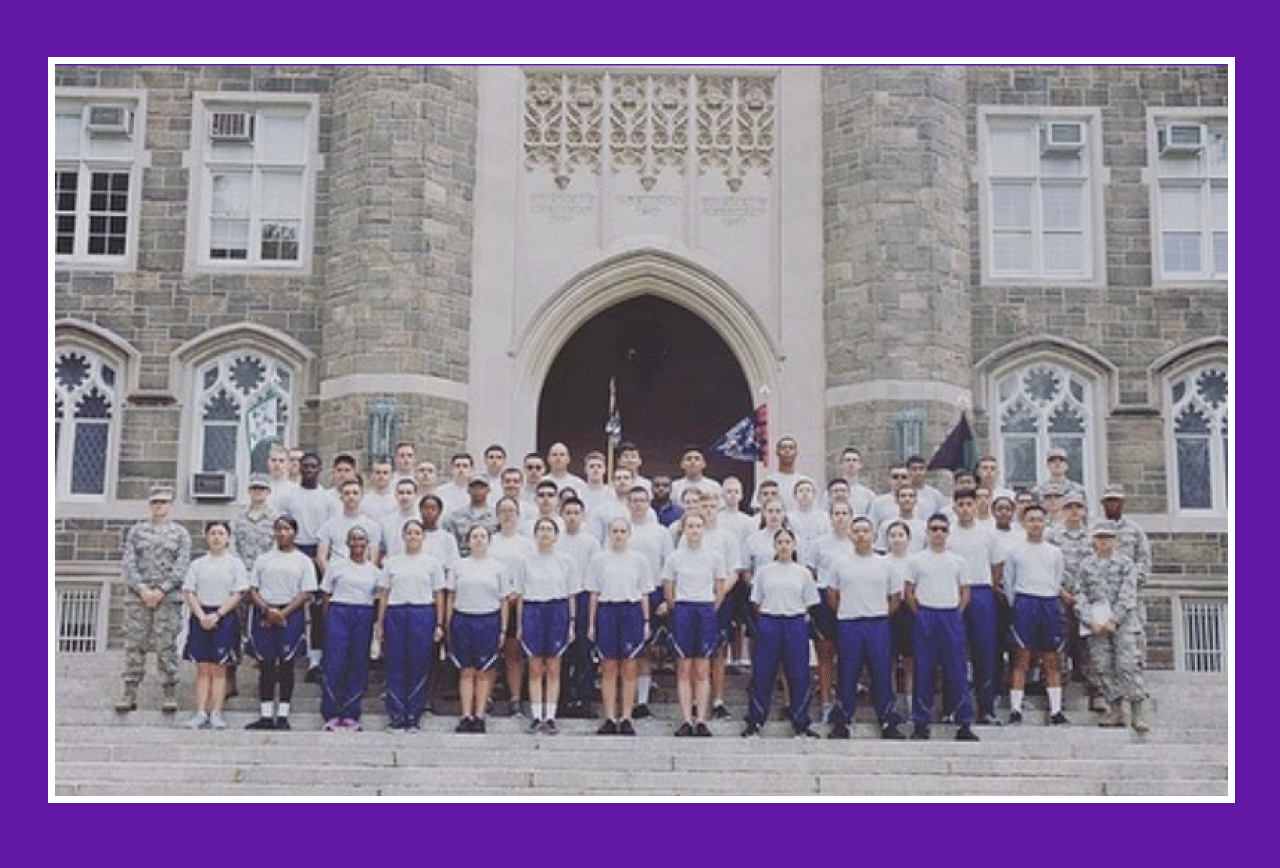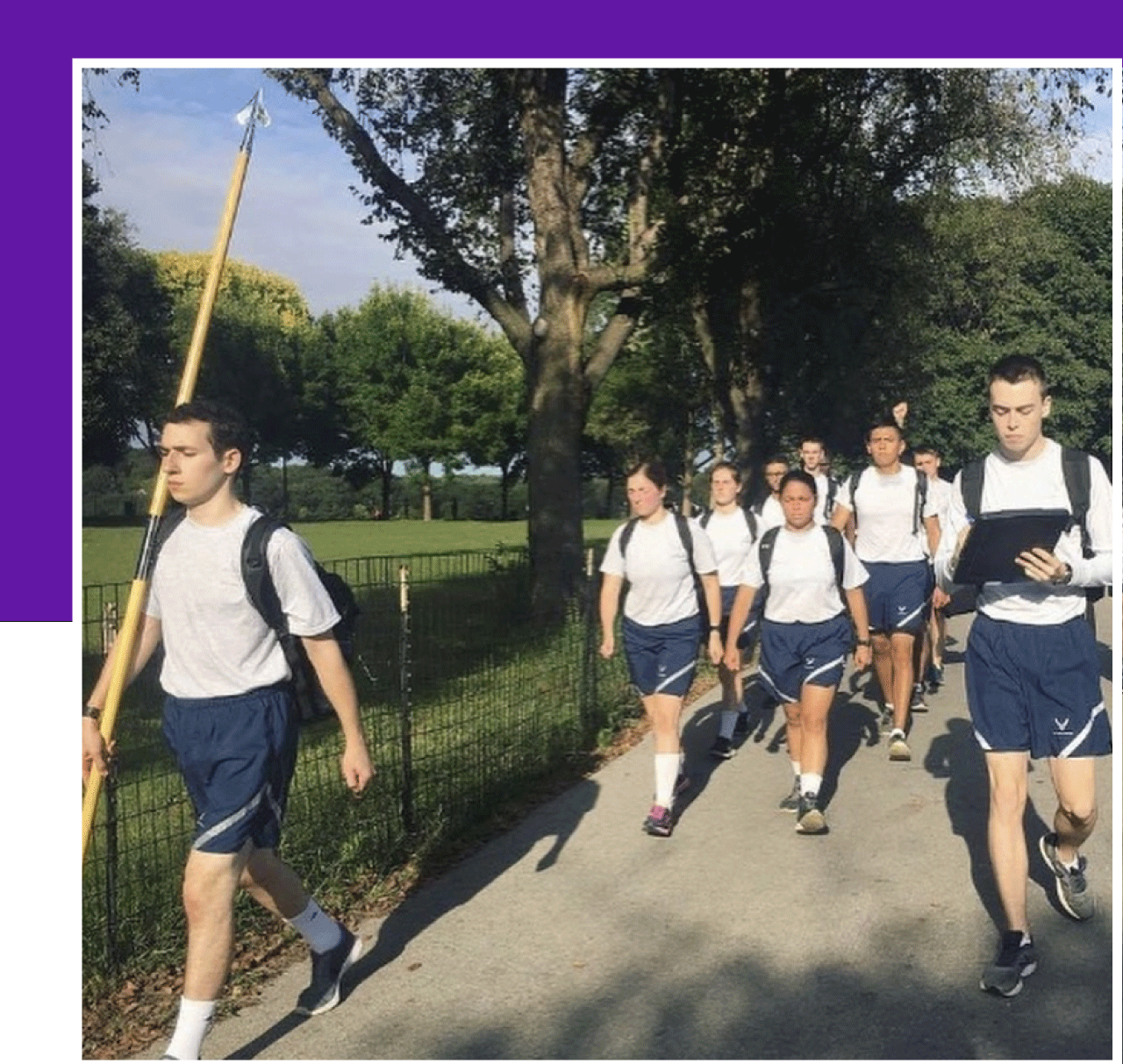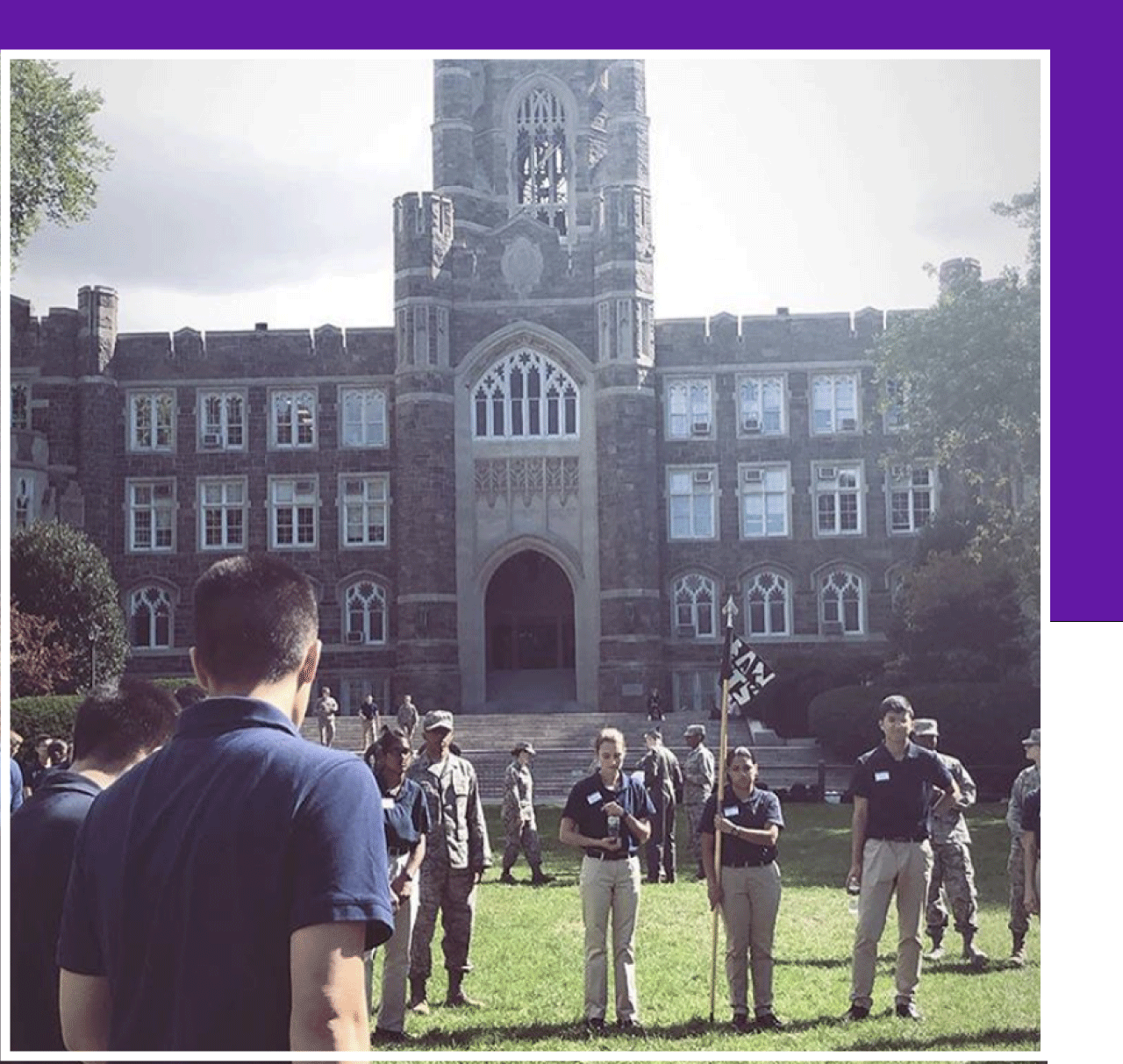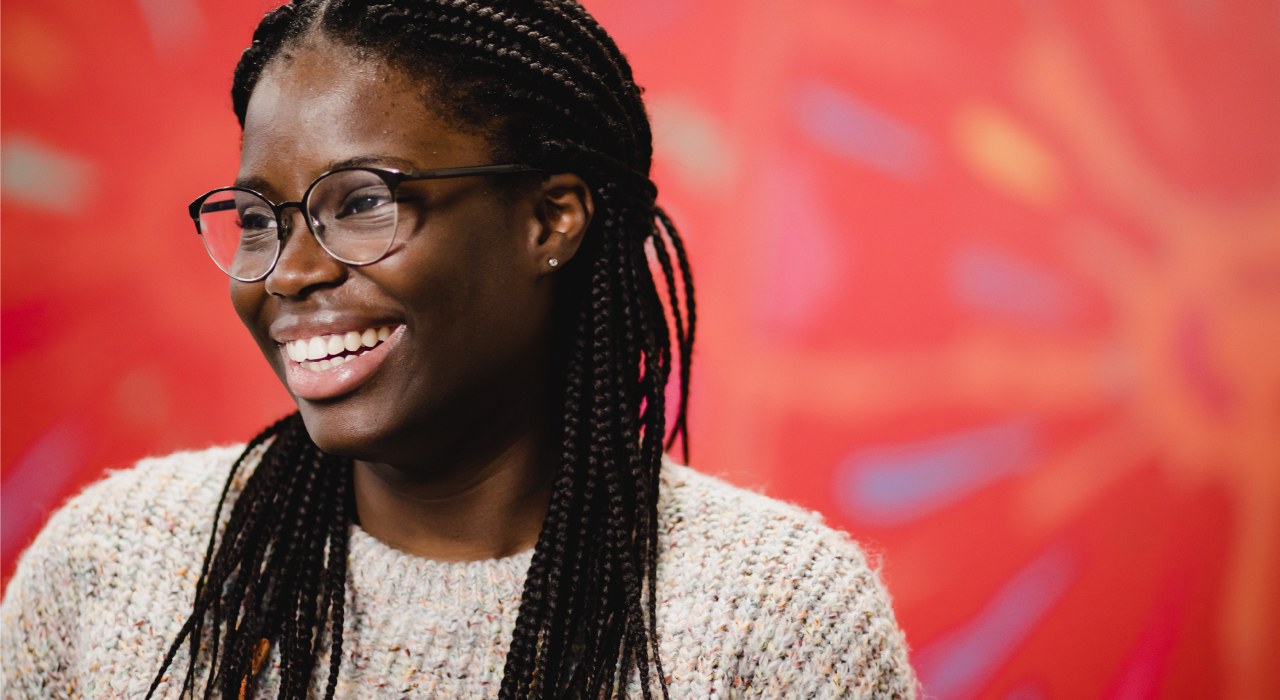For 11 years, NYU sophomore Cayden Horne lived near a military base in Seoul, South Korea. Her parents volunteered at the base on a weekly basis. Therefore, Cayden had the chance to connect with some of the children who lived there. They taught her about their lifestyle and introduced her to the idea of serving one’s country. As she grew older, those lessons inspired her to join the Air Force ROTC at NYU.
“We were very close to a few military families in South Korea,” says Cayden, a civil engineering student at the NYU Tandon School of Engineering. “The families were made up of humble, selfless, and kind men and women. When I got older, I knew I wanted to be part of this community of people who work toward a common goal and seek to make their lives count. That’s why I joined the Air Force ROTC program.”

A Day in the Life of an Air Force ROTC Cadet
Full-time NYU students can join the crosstown Air Force ROTC (AFROTC) program offered by Manhattan College in Riverdale, New York. Before the pandemic students from more than 30 colleges and universities came together on Manhattan College’s campus every Friday to attend classes and train as a single detachment. This year things are a little different. The students—known as cadets—were split into groups that alternate between in-person and online training each week. When they meet in person, cadets are required to wear masks and practice physical distancing. Although training has been modified, Shayna A. Crespo—one of Caydenʼs NYU AFROTC peers—says formal training days still involve three distinct parts: academics, leadership labs, and physical activity.
Whether in-person or online, AFROTC cadets start their day learning about military customs and courtesies, national defense policy, and the development of aerospace power. Then they transition into Leadership Lab (LLAB). In LLAB students review drills, marching, and military procedures. They also recite Warrior Knowledge, the military codes and quotes cadets need to memorize for field training. After LLAB cadets end their day with a physical training session comprised of push-ups, sit-ups, and long-distance running.
Building Well-Rounded Students
Formal training may only happen once a week, but AFROTC instructors fully expect cadets to review their training material and exercise on a daily basis. Since cadets spend most of the week at their own universities, NYU AFROTC cadet Christopher Mancini says they must manage their time wisely. The time they spend training must complement the time they spend studying for their degrees.
“Our superiors make it a point to say that while training is important, our academic performance needs to come first,” says Christopher, a sophomore double-majoring in Mechanical Engineering and Integrated Digital Media at NYU Tandon. “Joining the AFROTC doesn’t guarantee selection as an officer. Several factors are considered, including your health, fitness, and academic performance. The Air Force needs highly educated people, so academics are very important.”


Impacting Cadets for Years to Come
Because of their rigorous training schedules and diligent study sessions, AFROTC cadets build strong relationships with their peers in the detachment. They also master the skills they need to become effective military leaders. Mareda Michael, a Global Public Health major at the College of Arts and Science, says the AFROTC has impacted her in many ways. “I was apprehensive about joining AFROTC at first because I didn’t entirely know what I was getting myself into,” she says. “But I can honestly say it is one of the most rewarding decisions I have ever made.”
Like many other AFROTC cadets, Mareda has acquired effective leadership skills, learned how to cultivate a disciplined spirit, and mastered the art of accountability. But she relishes the incredible friends she’s met—and the lifelong memories they’ve created—the most. “I consider the people I learn and train with family,” says Mareda. “The relationships go beyond any sports team or club. The end goal is not a trophy or a championship but to serve together in the world’s greatest Air Force.” Even in these unprecedented times, Mareda and her peers stay connected through virtual platforms like Google Meet, GroupMe, and Slack.
Another Opportunity for NYU Students to Get Involved in ROTC
In addition to the AFROTC program at Manhattan College, NYU students can join the Army ROTC at Fordham University. Like AFROTC, the Army ROTC is a crosstown program, pulling students from colleges and universities throughout the greater New York City area. Army ROTC’s training and class schedule differs from the AFROTCʼs, but, according to Army ROTC cadet and Tisch film and TV student Sarah Steffens, the benefits are much the same. “ROTC has taught me how to be a leader in ways that no other program has,” she says. “It’s handed me responsibilities and asked me to step out of my comfort zone in ways I never have before. It brings out the best in me.”



